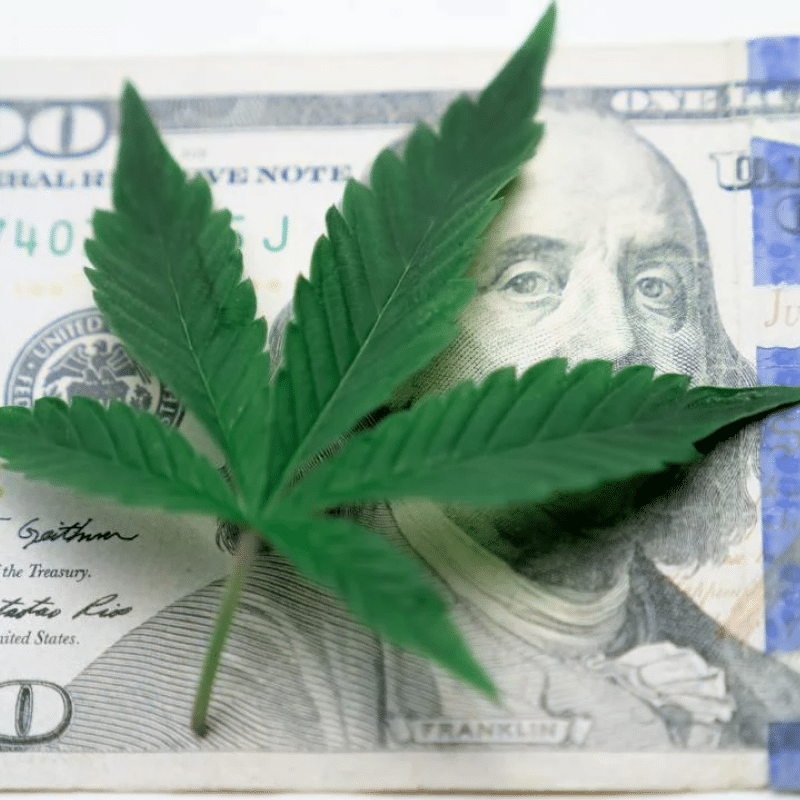Illinois Cannabis and its Flourishing Industry
The cannabis industry in Illinois has experienced remarkable growth following the legalization of recreational use, positioning the state as one of the largest markets for cannabis in the U.S. This success can be attributed to well-structured regulations, social equity initiatives, and significant involvement from major cannabis companies. As the market continues to evolve, Illinois aims to balance accessibility for consumers with the financial growth of the industry, while also addressing social equity and taxation concerns.

With the rise of legal cannabis markets across the country, Illinois stands out as a prime example of a thriving adult-use market. The landscape of marijuana sales in Illinois has changed significantly ever since the farm bill was passed in 2019.
Cannabis firms that would previously use small hidden-away buildings to manufacture the product now sell it openly and manufacture it on a much bigger scale.
But why has Illinois’s cannabis industry flourished significantly more than the other 50 states within the US? That can largely be attributed to the state’s laws and plans that aim toward economic growth, especially within the cannabis industry.
So, let’s dive in and take a closer look at the flourishing cannabis industry in the state of Illinois.
How Illinois’s Cannabis Industry Has Changed In The Past Few Years
The Illinois cannabis market has changed drastically over the past decade, particularly in the last five years. Cannabis sales have surged since the state legalized recreational use. Illinois has quickly become the third-largest cannabis market in the nation, trailing only behind California and Colorado.
Smaller marijuana businesses are succeeding and opening shops and cultivation facilities exponentially. In just a year, 60 more cannabis shops have opened up in Illinois, taking the total up to 173 from 113 just last year.
These new dispensaries are vital to Illinois’s financial growth since the state earns a whopping $452 million in tax revenue solely from them.
Retail sales have been booming, attracting not only local consumers but also out-of-state residents who travel to Illinois to partake in adult-use sales. This influx of customers has contributed significantly to the total sales figures reported by dispensaries across the state.
With so many shops and facilities opening up, the gap between the demand and supply of cannabis and its related products has also decreased. As a result, the price per gram of cannabis products has also decreased, making it more accessible to the general public.
Although decreased marijuana prices have slowed down the revenue growth, the number of cannabis products sold towards the end of 2023 was about 20% more than what it was last year. In fact, even with the decrease in price per gram, Illinois’s wholesome price for marijuana is still the fourth highest in the country.
In November 2023, the state documented $1.48 billion in sales, reflecting a 5% increase, equivalent to $72.6 million more than the corresponding period in 2022.
What Role Has The State Of Illinois Played In This Growth?
After the passing of the Farm Bill, many states, such as Michigan and Oklahoma, started handing out unlimited cannabis licenses to companies in hopes of boosting this new industry.
This lack of checks and balances had the opposite effect on the industry, and many cannabis companies saw their business slowly decline and ultimately fail.
On the contrary, the state of Illinois had a major role to play in the success of its cannabis industry. Like other states, Illinois also increased its number of licenses at a much more controlled rate.
From craft growers to large-scale cannabis production facilities, the industry is experiencing high vertical integration, allowing for a diverse range of products to cater to both medical patients and recreational users alike.
Comparisons to established markets like Washington State showcase the rapid growth and potential of the Illinois market. The state focused on fulfilling the promises of improving social equity initially put forward in its argument to legalize recreational cannabis.
Social Equity Lottery
The state launched a social equity criteria lottery that aimed to increase diversity within the industry and help partly reverse some of the damage done by the war on drugs.
The state tailored its licenses and made them easier to attain for people from neighborhoods that were hit the strongest by the war on drugs. This also included individuals who were previously arrested by the state for possession of low-level marijuana.
Although this plan received mixed reviews from government critics, it has played a significant role in the impressive growth of the state’s cannabis industry.
Home to Big Weed and More
Illinois is already at the front of the cannabis business since it is home to Big Weed: 3 out of 5 of the US’s biggest cannabis businesses are based in this Prairie state.
These are Cresco Labs, PharmaCann, and Verano Holdings. With such big names operating out of Illinois, it’s no surprise that marijuana sales and consumption are one of the highest in the US.
Plus, well-financed operators have rolled out several retail locations in Illinois. Dispensary 33 has launched six stores in Illinois under the brand name Spark’d.
Apart from that, six more stores under the Ivy Hall banner have made their debut, four of which are linked to World of Weed, a dispensary headquartered in Washington.
Aims To Diversify
Illinois has also seen a sizable surge in minority and women-owned cannabis businesses, especially since 2020. 27% of companies are owned by African Americans, 5% by Hispanics, and 3% by Asians.
What The Future Holds
The state of Illinois has provided some tax relief to cannabis business owners over the years, but the majority still have their eyes set on Washington for further tax relief.
President Joe Biden has also ordered regulators to reclassify marijuana as a less dangerous controlled substance. It’s expected that these regulations will start to be implemented within the next few months.
To classify marijuana as a less dangerous substance, it must go from a Schedule 1 to a Schedule 3 drug. If this happens, it would mean that the heavy taxes implemented on cannabis industries would decrease.
The decreased taxes mean that businesses would be able to increase their overall profits. This could also mean that the price per gram of cannabis and its products would also decrease, making it more accessible and affordable for Illinois’s population.
Conclusion
The Illinois Department of Financial and Professional Regulation oversees the financial and professional regulation aspects of the industry, ensuring compliance and accountability.
The laws and regulations implemented by the state ensure cannabis business licenses are given out in a controlled manner, resulting in optimal growth of the industry in the Prairie state.
Cannabis product prices in Illinois are still one of the highest in the country. Still, the state is hopeful that 2024 will bring about more tax relief for marijuana companies, especially if cannabis gets classified as a less dangerous substance.



